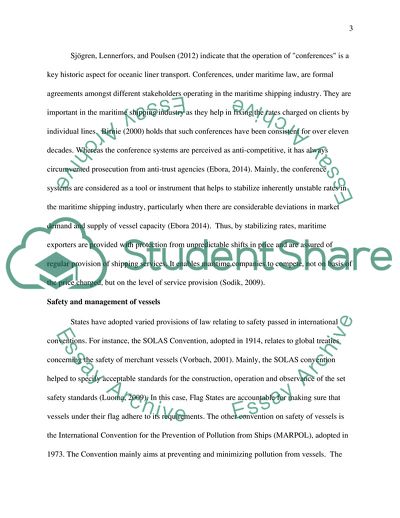Cite this document
(Problems in Maritime and Shipping Laws Assignment, n.d.)
Problems in Maritime and Shipping Laws Assignment. Retrieved from https://studentshare.org/law/1855149-the-biggest-problem-facing-the-maritime-and-shipping-industry-is-the-widespread-failure-to-adhere-to-domestic-and-international-conventions-on-vessel-management-and-safety-that-results-from-the-increase-in-the-number-of-countries-offering-bareboat-and
Problems in Maritime and Shipping Laws Assignment. Retrieved from https://studentshare.org/law/1855149-the-biggest-problem-facing-the-maritime-and-shipping-industry-is-the-widespread-failure-to-adhere-to-domestic-and-international-conventions-on-vessel-management-and-safety-that-results-from-the-increase-in-the-number-of-countries-offering-bareboat-and
(Problems in Maritime and Shipping Laws Assignment)
Problems in Maritime and Shipping Laws Assignment. https://studentshare.org/law/1855149-the-biggest-problem-facing-the-maritime-and-shipping-industry-is-the-widespread-failure-to-adhere-to-domestic-and-international-conventions-on-vessel-management-and-safety-that-results-from-the-increase-in-the-number-of-countries-offering-bareboat-and.
Problems in Maritime and Shipping Laws Assignment. https://studentshare.org/law/1855149-the-biggest-problem-facing-the-maritime-and-shipping-industry-is-the-widespread-failure-to-adhere-to-domestic-and-international-conventions-on-vessel-management-and-safety-that-results-from-the-increase-in-the-number-of-countries-offering-bareboat-and.
“Problems in Maritime and Shipping Laws Assignment”, n.d. https://studentshare.org/law/1855149-the-biggest-problem-facing-the-maritime-and-shipping-industry-is-the-widespread-failure-to-adhere-to-domestic-and-international-conventions-on-vessel-management-and-safety-that-results-from-the-increase-in-the-number-of-countries-offering-bareboat-and.


